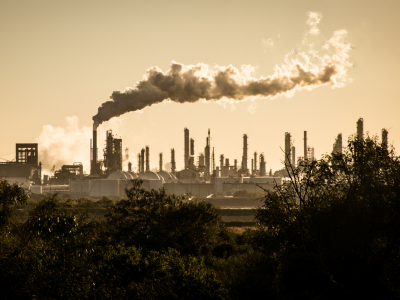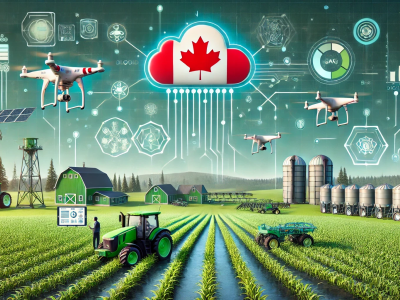Climate Change: From science to mitigation

There is a strong scientific consensus that human activities associated with greenhouse gas emissions are responsible for a warming planet. The extreme weather events predicted by the science that we have seen this past summer including flooding, wildfires, dust storms and record high temperatures are the latest demonstrations of man-made climate change. Scientists predict that such extreme weather events will grow in frequency and severity unless humanity takes global action to substantially reduce greenhouse gas (GHG) emissions and achieve net zero no later than 2050. By some accounts climate scientists and economists have been too conservative in their estimates of the negative impact of climate change.
The Intergovernmental Panel on Climate Change (IPCC) is the ultimate global authority on the science, risks, and solutions to climate change. The IPCC has been extremely effective at raising public awareness of the destructive impacts of global warming on the planet. As awareness has grown so has a greater desire by politicians and people from all walks of life to do something constructive to mitigate the potentially deadly effects of global warming. Unfortunately, in my view, connecting the science to the solutions has been a major shortcoming of the IPCC.
The Group III of the IPCC’s Sixth Assessment Report on climate change mitigation “assesses the literature on the scientific, technological, environmental, economic, and social aspects of mitigation of climate change”. The Integrated assessment models used by the IPCC to inform decisions and policies offer helpful insights on the world’s energy systems and how they would need to change to respond to the climate challenge. The main solution offered by the report is to electrify everything we can. The major push is for wind and solar to displace fossil fuel use, based on their plummeting costs including the cost of lithium-ion batteries. To a lesser extent the report to promote decarbonization includes growth in bioelectricity, geothermal and nuclear energy. Further the modeling scenarios to achieve net zero require the development and utilization of uncertain and unpredictable emissions mitigation technologies such as, the fuel switching to hydrogen to decarbonize the world’s energy systems, Direct Air Capture (DAC) and Bioenergy with Carbon Capture and Storage (BECCS) for carbon dioxide (CO2) removal. All three technologies are extraordinarily energy intensive, of low efficiency, difficult to scale, are at an early and commercially speculative stages of development and, in the case of BEECS, require massive land to grow biomass/trees to burn in lieu of fossil fuels. The IPCC report also relies on energy efficiency and behavioral change to reduce the demand for energy. The current reality is that energy consumption is increasing (67% increase 1990 to 2021) as are greenhouse gas emissions (53% increase 1990 to 2019) and meat consumption as an indicator of economic growth, has more than doubled since 1990. It appears that even though renewable energy is surging and improvements in energy efficiency are happening continuously, they are unable to compensate for the growth in energy consumption such that renewable energy is not actually replacing energy from fossil fuels, rather just adding to it. In addition, there is a major barrier to the switch from fossil fuels to renewable energy sources and the need for vast quantities of non-fossil minerals and metals. Estimates are that global minerals and metal reserves will not be sufficient to supply the metals needed for manufacturing of non-fossil fuel-based systems such as batteries, solar panels, wind turbines and electric vehicles.
In reviewing the bios of all seventy-one authors of the “Technical Summary to the IPCC Sixth Assessment Report”, there appears to be substantive academic expertise on the panel related to energy systems, environmental science and engineering, climate change modelling, land use, policy research, life cycle assessments etc. There is, however, little, or no industrial experience with building large capital and infrastructure projects. The IPCC selection process of expertise for mitigation and adaptation solutions appears to be partisan and as described recently leaves many unanswered questions. The IPCC would do well to immediately incorporate in their committees’ engineers with the required industrial expertise familiar with resources needed to achieve market share of renewable energy, production costs, economics of scale, storage and transportation issues, mineral and metal resources needed for the energy transition and timeframes in the design and analysis of energy infrastructure and plants that can make a difference to net zero by 2050.
From my perspective, the IPCC report on mitigation is largely devoid of the technical and economic realities, ignores the enormous scale requirements, and does not provide sufficient realistic technological options to support both action and mitigation policies in the timeframe required. In addition, the IPCC’s treatment of bioenergy as quasi carbon neutral is a serious concern. The argument is made that for biogenic derived fuels it is assumed that CO2 emissions from fuel combustion is offset by the carbon uptake during biomass growth and therefore counts as zero. This is a controversial and a discredited and harmful assumption since it implies that there are no emissions from combustion of biomass/biofuels. Instead the actual GHG emissions must be counted with ‘credit’ given to biomass growth and CO2 retention reflecting the period for achieving net zero. This considers the fact that the CO2 molecules from all and any combustion sources stay in the atmosphere for decades (if not centuries) and contribute to long-term global warming and the diminution of the carbon budget. Substitution of biofuels for fossil fuels in many cases results in an increase in GHG emissions when their actual emissions are considered.
In summary, the mitigation of climate change is of critical importance to humanity and the IPCC needs to redouble its efforts to provide rigorous engineering analysis of the operational maturity, reliability, and complexity of the technologies in the energy transition. Equally important is the analysis of net zero goals and their compatibility with energy security, energy affordability, energy reliability and economic development. As well, there is an important need to address the controversy regarding the use of bioenergy in the energy transition to encourage the correct policy choices and stem the tide of biogenic greenwashing.


